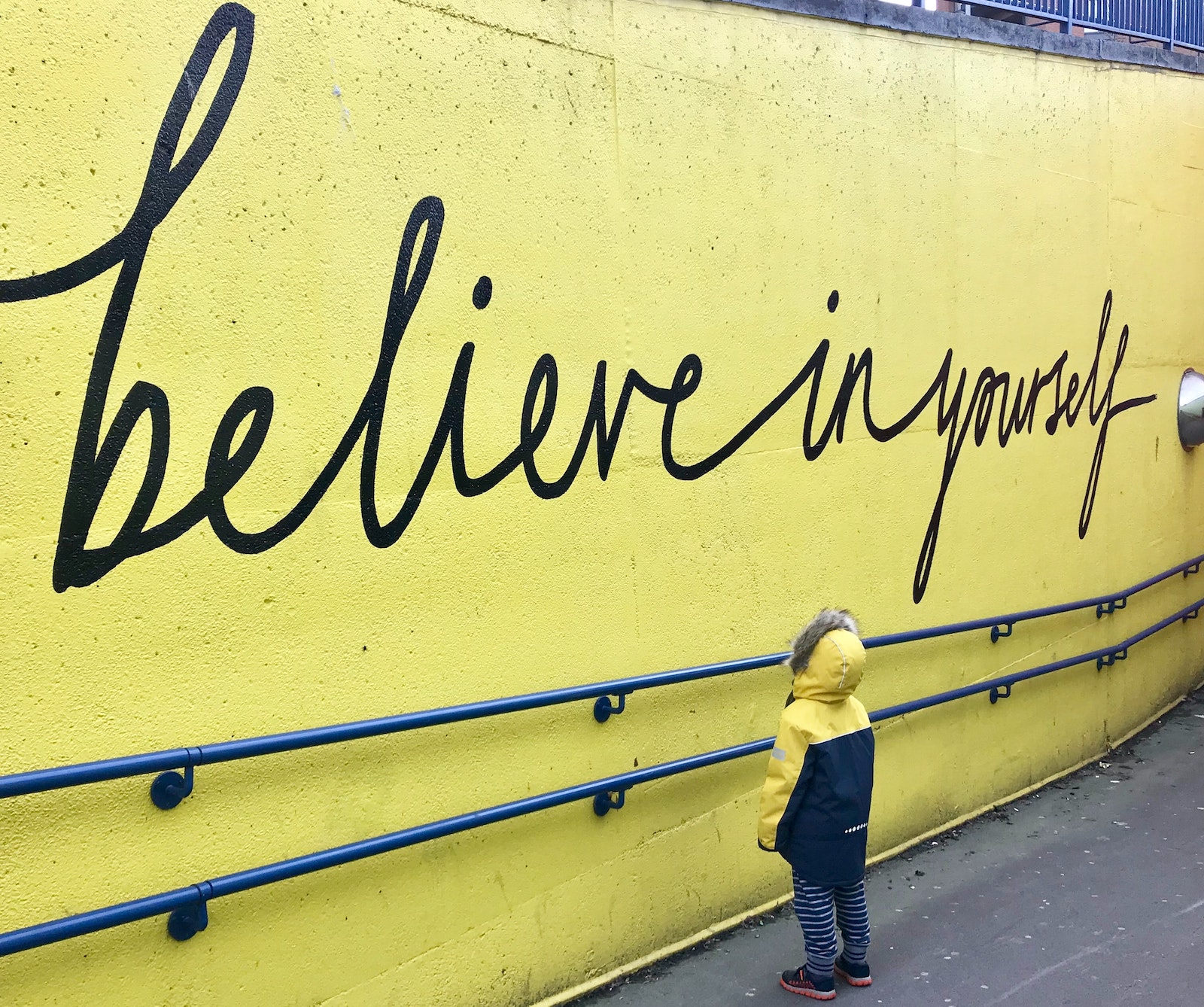
22 Oct How to develop a positive attitude in children
A positive mindset is an essential tool for children as they navigate the challenges of growing up. It can help them feel more confident and capable, build healthy relationships, and achieve their goals. A positive mindset also assists children in coping with stress and adversity. You can play an important role in helping a child develop a positive mindset, and this article we’ll provide tips and strategies for fostering a positive mindset in both young children and older kids.
What exactly is a positive attitude?
A positive attitude refers to a mindset or perspective characterised by optimism, hopefulness, and enthusiasm. It is a way of looking at the world and oneself with a sense of possibility, an openness to new experiences, and a belief in one’s own ability to make things happen. People with a positive attitude tend to see the best in others and situations.
A negative attitude, on the other hand, is characterised by feelings of hopelessness, helplessness, and cynicism. It can lead to feelings of despair and dissatisfaction, and it can make it difficult to achieve goals, to connect with others, and to cope with challenges.
Whilst having a positive attitude isn’t the answer to every problem, and it can’t be used to paper over underlying issues, it’s a far better starting point and foundation than the alternative.
Why is it important to have a positive attitude?
A positive attitude underpins a ‘can-do’ attitude and the belief that there is always a solution to a problem. Far from being something wishy-washy and something that doesn’t really exist, relentless positivity is a trait to be prized and, best of all, it can be developed, especially in children.
A positive mindset can help children to develop a healthy self-esteem, good emotional regulation, and a strong sense of self-worth. It can also help them to build resilience, handle stress and negative emotions, and create a positive vision for the future. The tips and strategies in this article can help parents to foster a positive mindset in their children, to build a foundation for a healthy and successful life.
Developing positivity in children
We can all be forgiven for having down moments and even down days – they will always happen. What’s important is that the default setting is positive. This enables anyone to better overcome the downs, and make those downs less deep. But why are we discussing children specifically? Being positive should be something everyone strives for.
Here’s the thing:
Developing the sought-after can-do attitude is far easier as a child than an adult. Of course, it’s also easier as adults and educators to pass on this knowledge and cultivate positivity whilst we can; whilst our children are children!
We have the best chance of creating ‘can-do’ kids when they’re in their formative years, around seven to ten years old, whilst they’re at primary (elementary) school. Creating this attitude towards life at this age will go a long way to developing a positive habit for the rest of their lives. Of course, it’s never too early or late to achieve it, it’s just easier at this point.
For people of any age, it’s crucial to be surrounded by positive people. We’re all impressionable and the people who make the most impression are those we have the most contact with – it rubs off. It’s the same reason that you want kids to hang out with smart, well-behaved children, not the kid setting off fireworks in their bedroom.
So this is the good news:
Children spend a lot of time with their parents. This is the perfect time to spread those positivity vibes. We put together a list of tips and activities to help develop positive attitude in kids of all ages.
15 ways to develop a positive mindset in children
1. Use positive language: The first thing to be aware of is the language you and your child use because this can have a significant impact on their mindset and how they frame situations. Use positive language when communicating with your child, and avoid flippant or unfair criticism or negative comments. This doesn’t mean there’s no room for pragmatism, but try to focus on praising their efforts and accomplishments.
2. Set and work towards goals: Help your child to set goals that are challenging but realistic, and then help them to break those goals down into smaller, more manageable tasks. Encourage them to celebrate their successes along the way, and to learn from any setbacks or failures. This builds a successful ‘track record’ that your child can remember and use to their advantage.
Activity: Create a vision board with your child. It’s a collage of pictures, words, and other elements that represents their hopes, dreams, and aspirations. This can be a way to help them develop a positive vision for the future and work towards goals. All you need is a cork board and some magazine cut outs.
3. Watch movies with positive messaging: Films with positive messages are powerful tools to inspire children to tackle challenges with the right attitude. We compiled a list of the best animated films for kids to develop positive mindsets. For older kids, movies and documentaries about real figures that overcame adversity are just as powerful. The stories of successful entrepreneurs such as Jeff Bezos, Mark Zuckerberg and Oprah Winfrey are perfect for this.
4. Encourage mindfulness and relaxation: Help your child to learn mindfulness and relaxation techniques, such as deep breathing, visualisation, or meditation. This can alleviate stress and help them better perceive situations for what they are; often more positive than we might have initially thought.
Activity: Practice mindful breathing exercises. There are many guided meditations for children available online, and this can be a great way to help children to relax, focus, and learn to manage their emotions.
5. Encourage creativity and imagination: Encourage your child to explore their creativity and imagination through art, music, or other creative outlets.
Activity: If you’re not sure where to start, get your child colouring books with mandalas or other intricate designs. This can be a way to practice mindfulness and focus in the present moment while also allowing them to express their creativity.
6. Encourage physical activity: Exercise has been shown to improve mood and self-esteem, so encourage your child to get plenty of physical activity. Sports and active games are also a great tool to develop other characteristics such as resilience, resourcefulness, teamwork and tactical thinking.
7. Teach self-awareness and how to regulate emotions: Teach your child how to recognise and manage their emotions, and help them to develop healthy ways to cope with difficult feelings. This begins with developing self-awareness – understanding how they feel and being able to try and separate from those feelings to asses how they feel. This can be challenging for very young children, but once they’re of primary school age, it may be time to try it.
8. Practice gratitude: Help your child to develop a habit of gratitude by encouraging them to think about the things they’re thankful for. This can help to shift their focus away from negative thoughts and feelings.
Activity: Create a gratitude jar, which is a container that they can fill with notes listing things they are thankful for. Every day or week, have them pick one and talk about why they are grateful for it, which will help them to appreciate the good things already in their life.
9. Create a list of positive affirmations: Affirmations are phrases or mantras that someone thinks or says to remind themselves of something. They affirm that you “can do anything you set your mind to”, for example, and they’re an incredibly useful way to support staying positive in challenging situations. Children can take turns reading their affirmations aloud to the family.
If you’re seeking inspiration, check out these affirmation cards for kids and these highly-rated mindful affirmations and activities.
10. Cultivate a growth mindset: Help your child to understand that they can grow and change over time, and that challenges and setbacks are an important part of learning and personal growth. This is a key concept that we’ve written more about here. With a growth mindset, they’ll believe that something they struggle with now is something they’ll develop the skills and knowledge to deal with better in the future.
11. Help them to learn empathy: Help your child to develop empathy by encouraging them to put themselves in other people’s shoes and to think about how others might feel in certain situations. This can provide perspective and encourage better connections with others.
Activity: Play the empathy game where children take turns acting out different emotions and the other children have to guess which emotion they are feeling and why. This can help children understand and empathise with different emotions and perspectives.
12. Help them develop a positive self-image: Help your child to develop a positive self-image by encouraging them to focus on their strengths and accomplishments, and by helping them to understand that their worth is not defined by their successes or failures.
Activity: Create a compliment circle. In this activity, everyone takes turns giving someone else a compliment. This can help children learn to focus on the good qualities of others, as well as to accept and appreciate compliments from others.
13. Encourage them to take action: Encourage your child to take action to make a positive difference both in their life and community. If they believe they can make a situation better, they must learn to act upon it. This could be through speaking to someone to resolve an issue or working on something bigger picture through volunteer work, fundraising, or generating awareness.
14. Find meaning and purpose: For older children, it’s possible to help them dig deeper into their motivations for doing things. Help them find a sense of meaning and purpose by encouraging them to explore their interests and passions. This can demonstrate to teenager or young adult that they can enjoy themselves, spend their time productively and perhaps contribute to a longer-term life goal.
15. Model positive behaviour: Finally, remember that children learn by example. We began by emphasising the importance of language and we finish with behaviour. All humans mimic those around them and children will soak up everything you say and do. Be absolutely sure to model the kind of behaviour you want to see in your child. Subtle changes over time will have a huge impact on their thoughts and actions so be mindful of your contribution.
This is the perfect starting point to help your child develop the right attitude towards life, play, work and relationships. If you have any more tips and ideas, we’d love to hear from you.







